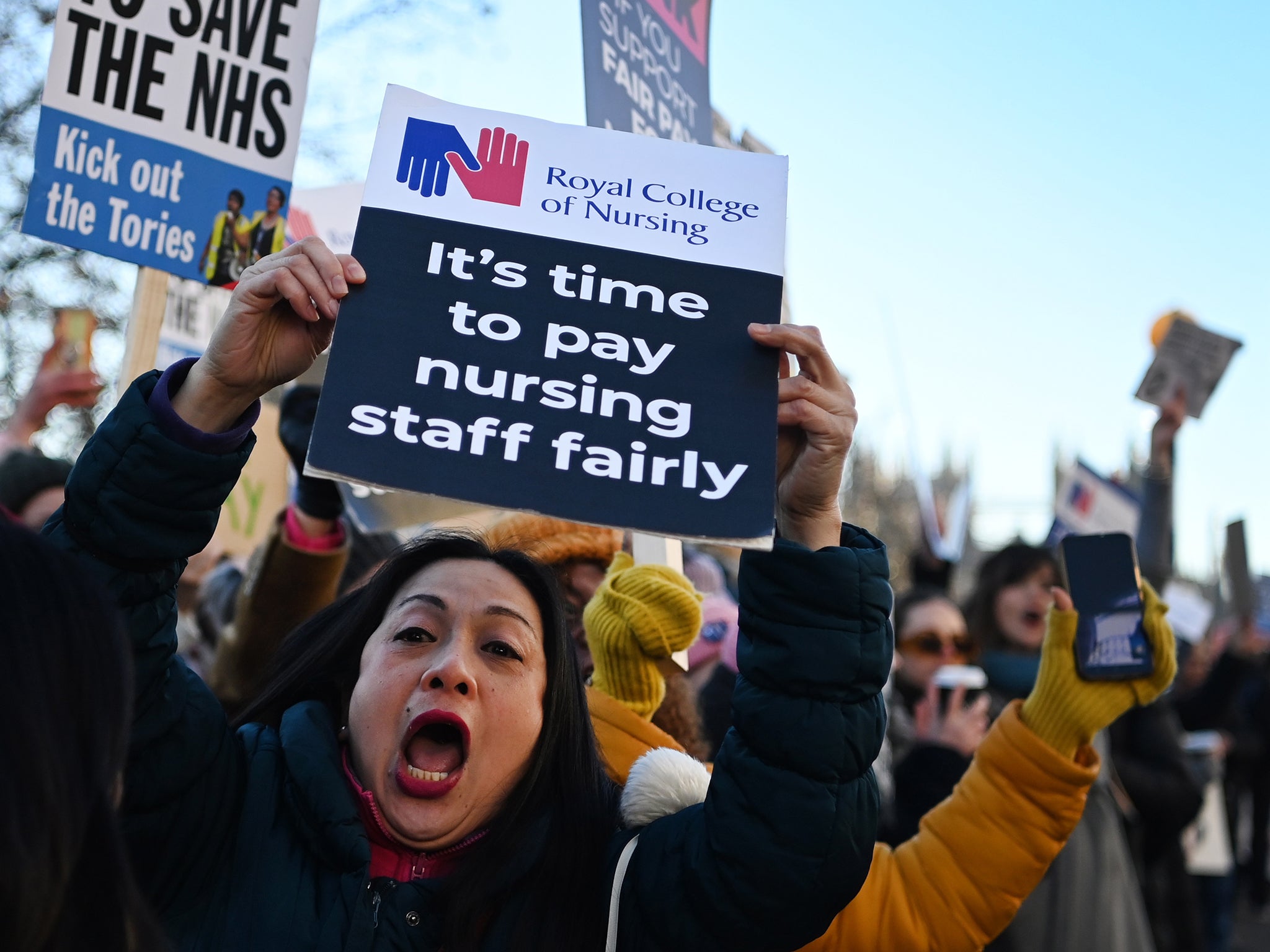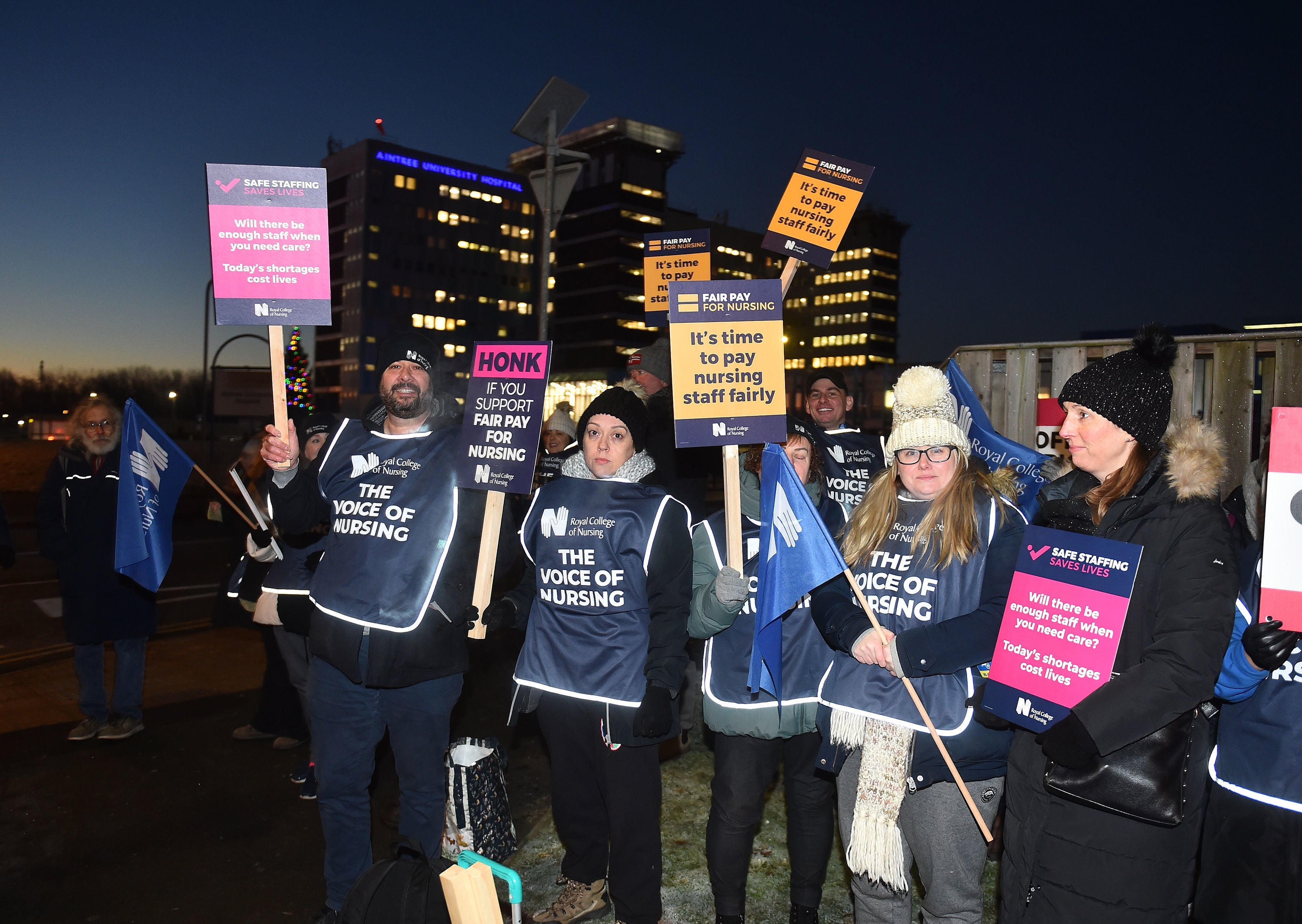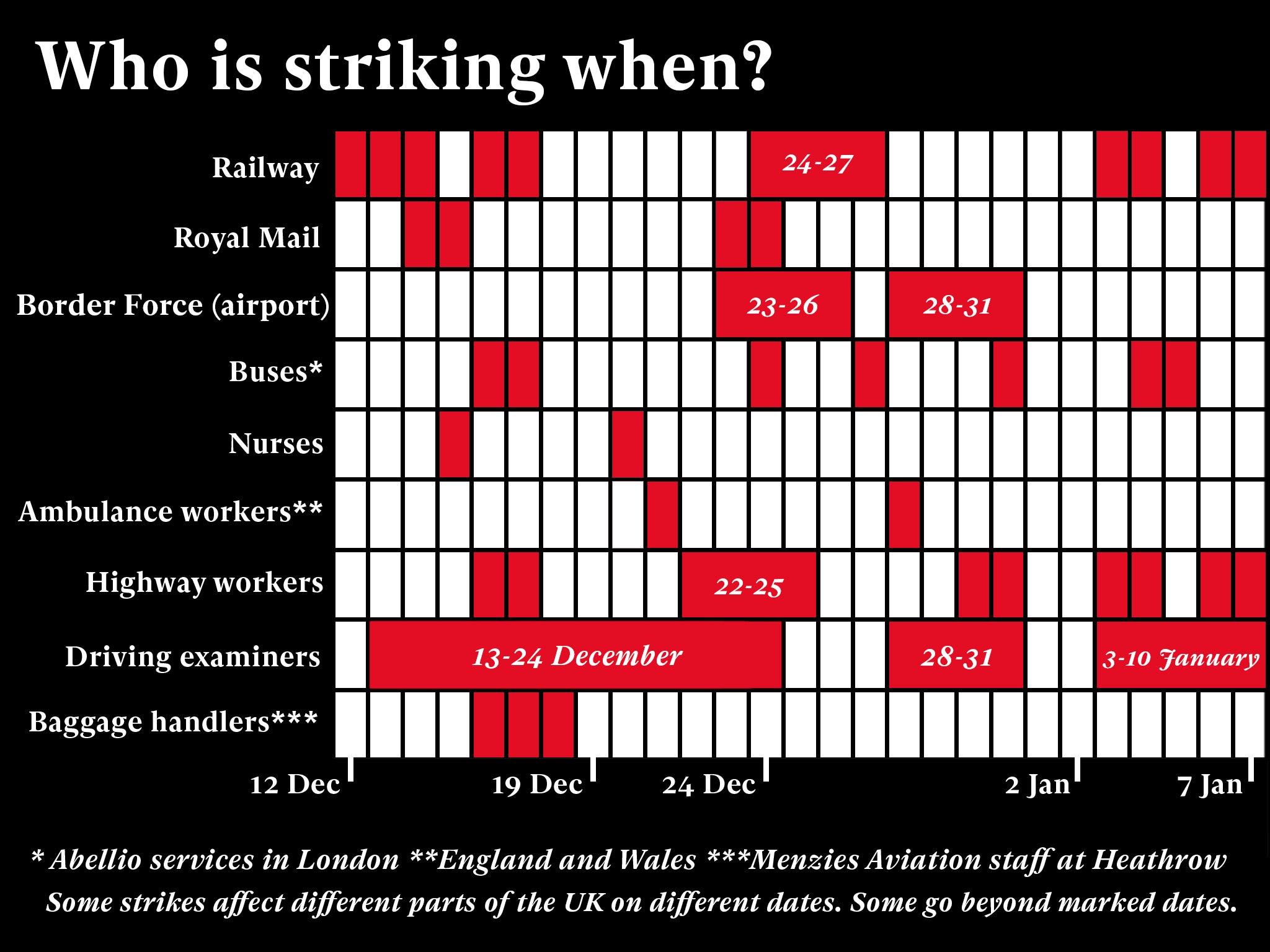
The army will be sent in to cover for ambulance drivers and border workers as ministers seek to avoid disruption over several days of public sector strikes.
Meanwhile, health unions offered to suspend industrial action over the Christmas period if ministers agree to serious negotiations after weeks of deadlock.
The government is stepping up contingency plans for industrial action over the festive period, with 1,200 members of the armed forces poised to plug staffing gaps in the NHS and Border Force in order to maintain public safety, the Cabinet Office said.
These include 600 ambulance drivers and a further 150 military personnel providing logistical support. Community first responders will also be used to help manage demand for medical care.
Ambulance crews in England are due to walk out for two days on 21 and 28 December in a row over pay.
Steve Barclay, the health secretary, said his “number one priority” was keeping patients “as safe as possible” as he reiterated the government’s position that union demands are “not affordable”.
Unions representing nurses and ambulance workers indicated they were prepared to consider pay settlements below what they had earlier demanded.
Deals similar to those which led to the suspension of health worker strikes in Scotland, where staff were offered between 2 and 11 per cent with an average of 7.5 per cent, may be pallatable, The Observer was told.
Pat Cullen, general secretary of the Royal College of Nursing (RCN), which is due to pull 100,000 of its members out on strike on Tuesday in England, Wales and Northern Ireland, said she was prepared to “press pause” on strikes if Mr Barclay agreed to meet to “negotiate seriously”.

“That means each of us giving some ground,” she told the paper. “He gains nothing by ignoring the representatives of the NHS workforce. The public blames government for this dire situation, and they have to face up to it. A swift change of tactics will pay off for all concerned.”
Strikes in Scotland were averted after Unison, representing ambulance workers, and Unite recommeded their members accept the pay offer.
Chiristina McAnea, Unison general secretary, said a similar offer to NHS workers in the rest of the UK “could well” mean the strike threats being lifted. “Rather than scare the public about the consequences of strikes, the health secretary should table genuine plans for improving wages,” she said.
She added that “the ball sits firmly in the government’s court. Ministers know what they must do to prevent disruption later this month.”
Speaking ahead of the reports, Mr Barclay said he was open for further discussion and that it was “deeply regrettable” that unions were planning to strike.

Unions said Mr Barclay had only met with them twice in recent weeks, both times refusing to discuss pay, while taking a “macho” and “confrontational” stance.
As mass walkouts loom, the government said the NHS will enact “tried and tested” plans to mitigate risks to patient safety and manage disruption, while trusts will work with unions to agree on a safe level of cover.
Military personnel will also join more than 1,000 civil servants to cover for striking Border Force staff, as members of the Public and Commercial Services union walk out for eight days from 23 December until New Year’s Eve.
Complaints arose over the government’s apparent willingless to draft the army in to prop up public services.

Admiral Sir Tony Radakin, head of Britain’s armed forces, said the military ranks were not “spare capacity” for striking workers.
“We’re busy and we’re doing lots of things on behalf of the nation,” he told The Telegraph, adding it would be “slightly perilous” to hold the army in a continued substitute position.
Unions also lashed out at the plans, claiming are not “sufficiently trained” to plug staffing gaps on the front line.
Sara Gorton, Unison’s head of health, also warned the military is “no substitute” for qualified ambulance staff, while Nathan Holman, from GMB, which also represents ambulance workers, said bringing in “untrained” personnel would be a “hindrance” rather than a help.
The Cabinet Office plans to publish a new “resilience framework” on Monday, bringing together all levels of government, as well as the private sector, charities and the public to “bolster” the UK’s preparedness for industrial action.







